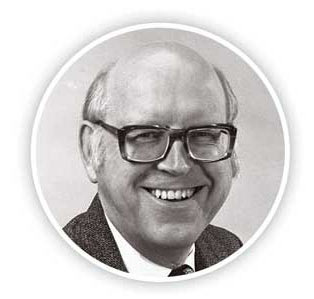A Quote by Kelly Evans
A 'reptilian revolution' has the potential to reshape manufacturing. The 'snakebots' being developed at Carnegie Mellon University aren't just useful for surgical or search-and-rescue purposes. They could also usher in a new, more customized era of mass production.
Related Quotes
The 'snakebot', which is a type of mechanized, biologically inspired robot, itself has roots in Japanese laboratories of the 1970s. What the team at Pittsburgh-based Carnegie Mellon is doing today under professor Howie Choset is making the 'snakebots' stronger, smaller, and more maneuverable than ever.
I became a member of the faculty at Northwestern University in 1965 but did not complete my thesis until two years later at a graduate ceremony at which Carnegie Institute of Technology became Carnegie-Mellon University. At Northwestern, I was mentored by the 'three Bobs:' Robert Eisner, Robert Strotz and Robert Clower.
At Carnegie Hall the Preservation Hall Jazz Band showed how easily it could hop from era to era. It could work like a rhythm-and-blues horn section or a tightly arranged little big band if need be, but it could also switch back into the polyphonic glories of vintage New Orleans jazz, in which nearly every instrument seems to improvise around the tune at the same time.
Looking ahead, future generations may learn their social skills from robots in the first place. The cute yellow Keepon robot from Carnegie Mellon University has shown the ability to facilitate social interactions with autistic children. Morphy at the University of Washington happily teaches gestures to children by demonstration.
Both for the production on a mass scale of this communist consciousness, and for the success of the cause itself, the alteration of men on a mass scale is necessary, an alteration which can only take place in a practical movement, a revolution; this revolution is necessary, therefore, not only because the ruling class cannot be overthrown in any other way, but also because the class overthrowing it can only in a revolution succeed in ridding itself of all the muck of ages and become fitted to found society anew.
Don't Shoot is a work of moral philosophy that reads like a crime novel - Immanuel Kant meets Joseph Wambaugh. It's a fascinating, inspiring, and wonderfully well written story of one man's quest to solve a problem no one thought could be solved: the scourge of inner city gang violence This is a vitally important work that has the potential to usher in a new era in policing.
In less than a year Revolution has gone from being a concept to a reality, with three rapidly growing sector companies, overseeing a dozen acquired firms that collectively employ more than 2,500 people. But we're just scratching the surface in terms of the potential to build Revolution into a new kind of company that gives consumers more choice, control and convenience in the important aspects of their lives.
In joint scientific efforts extending over twenty years, initially in collaboration with J. C. Shaw at the RAND Corporation, and subsequently with numerous faculty and student colleagues at Carnegie-Mellon University, they have made basic contributions to artificial intelligence, the psychology of human cognition, and list processing.































